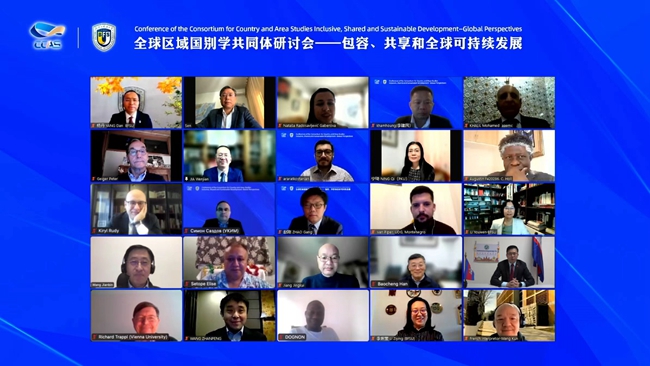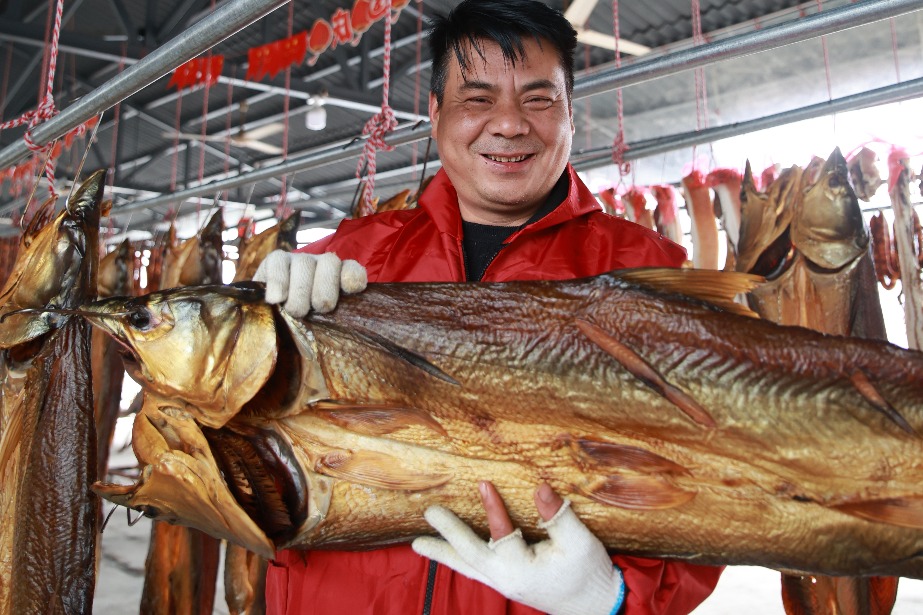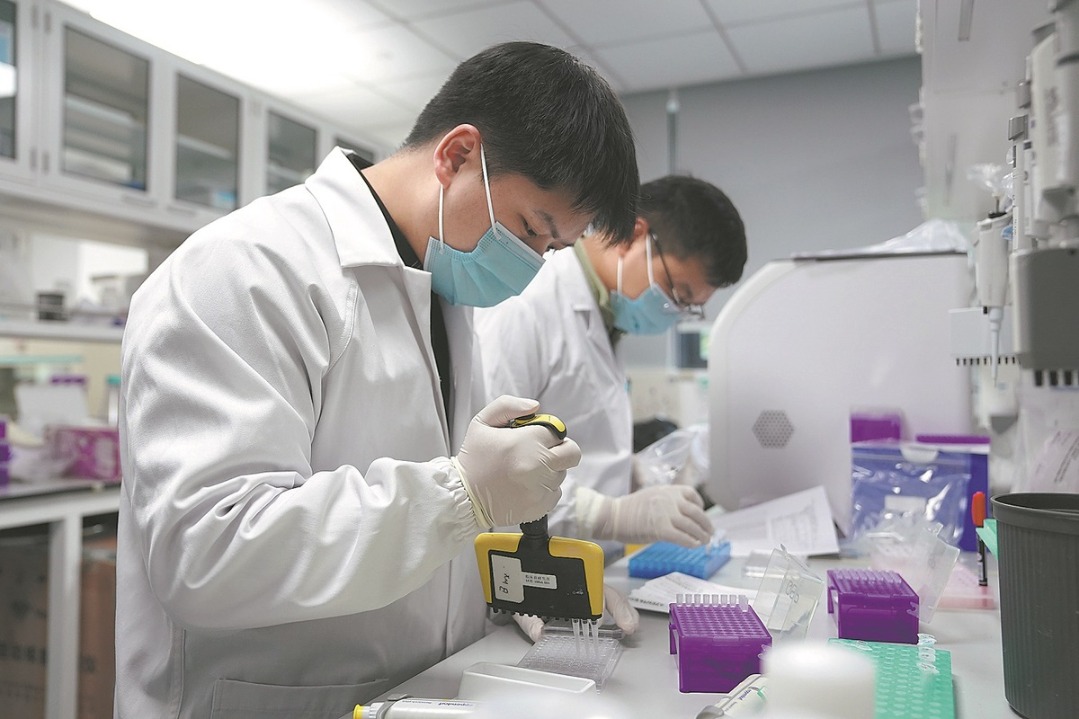CCAS conference looks at shared, sustainable development


The conference of the Consortium for Country and Area Studies was held by Beijing Foreign Studies University online recently, themed "Inclusive, Shared and Sustainable Development—Global Perspectives".
CCAS is initiated by the Global Alliance of Foreign Studies Universities to promote the motto of "Better Understanding, Better World". It brings together a network of academics coming from 181 countries who speak more than 100 different languages, integrating their expertise to strengthen the systematic study of country and area issues, global governance system reform, and pertinent global challenges.
Yang Dan, President of Beijing Foreign Studies University, said China has always been a significant contributor to world civilization.
While the modernization process in China includes elements common to all modernization processes, the Chinese path to modernization is primarily distinguished by five hallmarks specific to the Chinese setting: the modernization of a vast population, the creation of common prosperity for all, a balanced growth of material and cultural ethics, harmony between humans and nature, and peaceful development and harmonious coexistence.
Yang believes that the Chinese path to modernization is relevant worldwide because it has re-charted the course of modernization, opened up new possibilities for developing countries, created a new form of human civilization and rejuvenated the world.
Jiang Feng, Party secretary of Shanghai International Studies University, said common security and common development are the defining theme in this century of rapid global, societal and historical change.
The path to common security and common development can be smoothened by creating a new form of human advancement that transcends national boundaries, integrates both commonality and uniqueness, and strives for a community of shared futures based on the common values of humanity, he said.
The foundation of a true shared community is a sense of prosperity that ensues from respect for diversity, cultural exchange and mutual learning, he added.
Velia Govaere, professor at Distance State University (UNED) in Costa Rica said UN Sustainable Development Goal progress and successes are largely the result of globalization.
Progress in countries cannot be put into perspective until the importance of trade liberalization underlying the ambitious SDGs is acknowledged, she said.
Indeed, this is how the significant role played by trade between Latin America and China must be seen. The "China Miracle", lauded by the left-wing in Latin America as the paradigm for the epoch, exemplifies socially equitable economic growth, open trade, endogenous technological progress and non-ideological global interconnectedness, she said.
Edmond Moukala, Director of the UNESCO Mali Office, urged for strengthening regional cooperation and establishing early warning mechanisms to tackle intertwined threats of climate change, food shortages and regional conflicts, and promote resilient and sustainable development.
He suggested to increase data accessibility and quality through stronger regional and international cooperation in order to build a better early warning system.
He also called for developing local capability and boosting investment to support targeted long-term adaptation, especially in agriculture and farming, which is to create a big enough buffer for resilient livelihoods and food security in the event of conflicts and displacement.
- Lantern Festival lights bring the Dunhuang grottoes to life
- China's 2026 Spring Festival travel rush to begin
- Knocking on the stone-framed door
- Shanghai Science and Technology Museum to reopen soon
- Shanghai celebrates Spring Festival with intl students
- Pegasus fondant artwork ushers in Year of the Horse in Shanghai




































